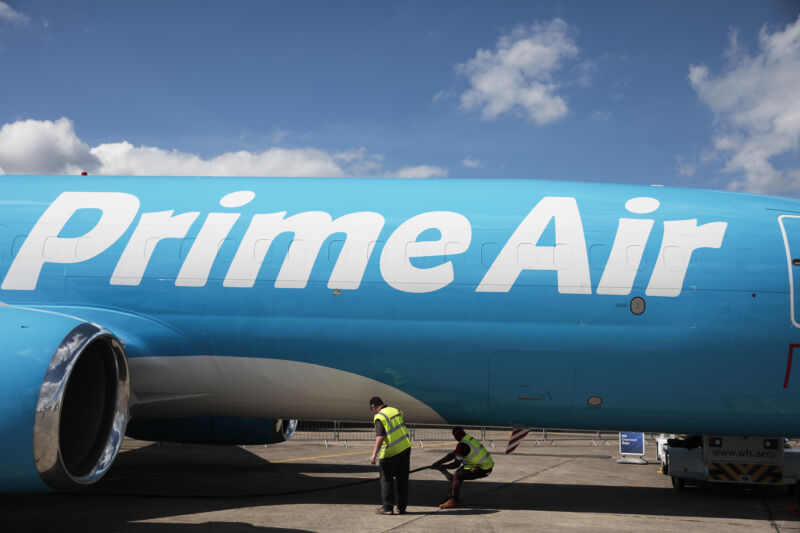
Amazon is making some vendors and suppliers offers they can’t refuse. As part of large contracts with the retailer, companies have to offer Amazon the right to buy their stock at a potentially discounted price.
The e-commerce giant started including warrants—rights to buy stock in the future at a set price—in vendor contracts a decade ago. But in recent years, Amazon has been making the unusual request more frequently, according to a new report from The Wall Street Journal. Amazon’s last quarterly report said the company held $2.8 billion in warrants, up fivefold in the last three years.
Amazon executives are reportedly careful not to include anything in writing that would suggest that the warrants are required for a vendor to earn the contract, but apparently the message didn’t need to be delivered in writing. Almost all the companies that were offered contracts that included terms for warrants accepted the deal. “Several former Amazon executives who worked on such deals said in interviews that they found them to be unfair and one-sided, saying the companies weren’t in a position to refuse and that most of the upside went to Amazon,” the WSJ wrote.
The deals tend to be with companies offering goods or services that help Amazon run its business, not vendors that would sell goods on the e-commerce site.
Such deals aren’t unheard of, although, in the US, they’re typically done with companies that are considered high risk. Amazon executives used the bank bailouts of 2008 as a template for their deals. Similar—though not identical—arrangements happen in other countries. In China, foreign companies must frequently enter into joint ventures with local firms to gain access to the market. In Japan, companies involved in a keiretsu all own small stakes in the other companies, making the arrangements more mutual than Amazon’s deals.
Amazon reportedly targets its warrant requests at smaller companies that might see a big jump in business as a result of a deal with the retailer. Such arrangements help Amazon share in some of the gains these companies see after the contracts are announced.Last year, Amazon amended its contract with SpartanNash, a grocery distributor it had been using to fulfill Amazon Fresh orders. Upon signing the deal, Amazon received warrants worth 2.5 percent of the company’s stock and the option to receive another 12.5 percent if the retailer buys $8 billion worth of groceries over seven years. SpartanNash’s stock price surged 26 percent the day the deal was announced, and though the price has slid since, it’s still up 12 percent.
Another supplier, Clean Energy Fuels Corp., which sells natural gas sourced from landfills and other “biogenic” sources, signed a contract with Amazon that allowed the retailer to buy up to 20 percent of the company over the next ten years. Executives at the gas supplier reportedly hope that the warrants and potential shareholding will keep Amazon from buying from other suppliers.
Not all companies are eager to meet Amazon's terms, though, according to the article. Air Transport Services Group, known as ATSG, was negotiating a deal to lease 20 Boeing 767s to Amazon for its delivery network. Amazon wanted warrants as part of the contract, but ATSG executives weren’t thrilled with the idea. Amazon pushed hard in “intense, protracted negotiations,” one person told the WSJ. “It took a lot of convincing.” ATSG ended up agreeing to the terms in 2016, and last month, Amazon exercised its warrants, buying 19.5 percent of ATSG’s stock. If Amazon leases more aircraft, the company could receive additional warrants, giving it the option to own up to 39.9 percent of the cargo airline.Amazon also has contracts with Atlas Air and Cargojet that include warrants, and it has a similar arrangement with Startek, a call-center company. During the Atlas Air negotiations, which resulted in Amazon receiving warrants for up to 30 percent of the company, “there was definitely a sense that if it wasn’t agreed to, there wouldn’t be a deal,” a source told the WSJ.
reader comments
131